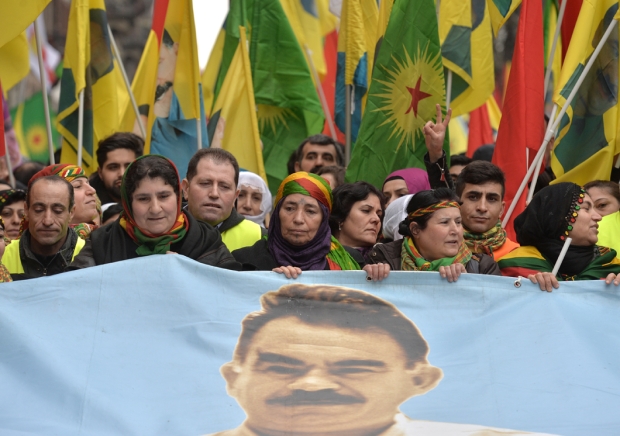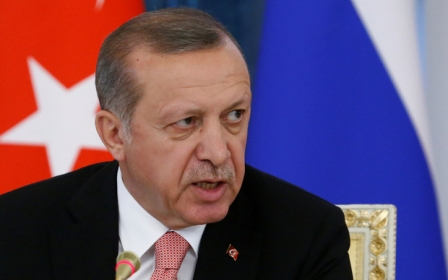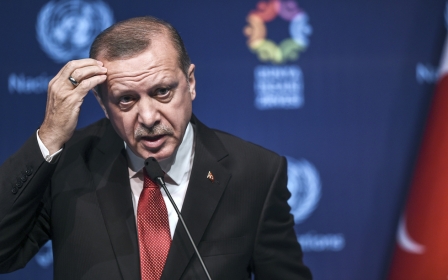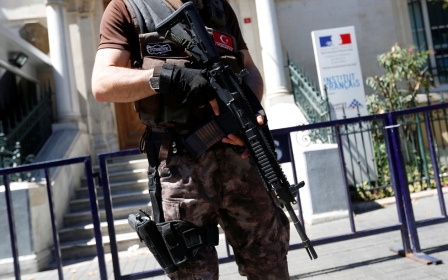Losing Turkey: European vote makes little difference to Ankara’s turn east
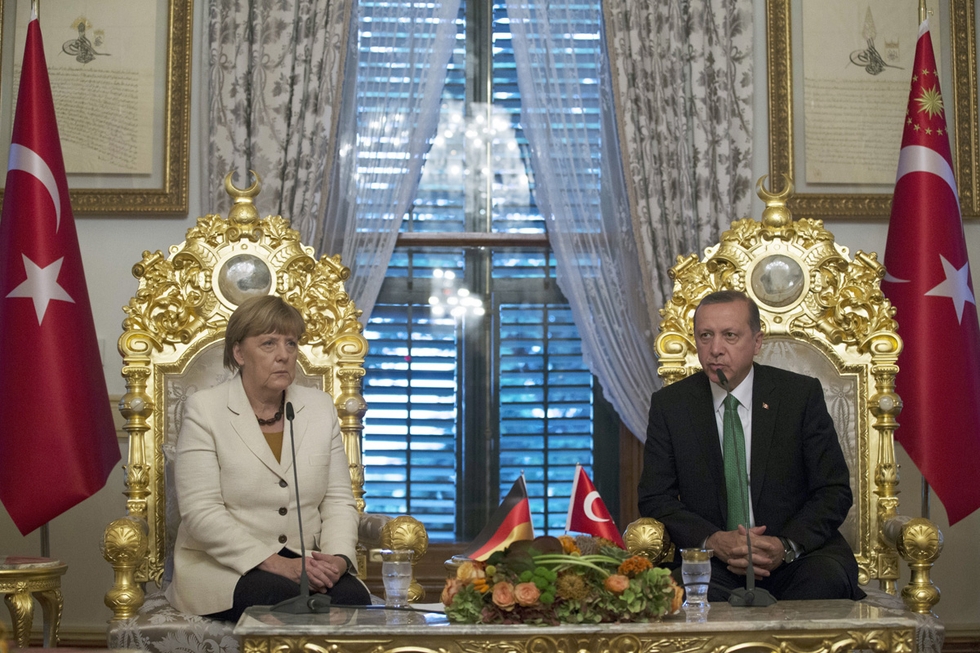
The European Union tends to relentlessly draw pompous and pathetic rhetoric when it comes to Turkey’s readiness to start accession negotiations. Former British Prime Minister David Cameron teasingly told ITV’s Robert Peston that at the current rate of progress, Turkey would accurately need decades to join EU, in “about the year 3000.”
It appears that the current rift with the EU is pushing Turkey to formulate new alliances away from the Western bloc
Interestingly, Cameron himself was once an eloquent advocator of Turkey’s membership. Back in 2010, he proclaimed that he would do everything possible to guarantee the approval of Turkey’s bid. He even told the then Prime Minister Recep Tayyip Erdogan that he would fight for Turkey’s right to join the EU presumably because Turkey is vigorous not only to the EU economy but also for its security and stability.
Cameron also contradicted claims from European politicians that Turkey can only guard the camp but cannot sit in the tent. The EU gratuitously turns a blind eye to its shared interests with Turkey on refugees, on terror, on larger questions of regional peace and stability merely for the sake of bogus fears.
At the time Erdogan declared the state of emergency in the wake of the failed coup of 15 July, Europe metaphorically launched its wave of missiles towards Turkey.
Bizarrely, Turkey was acting just like France, which took the same decision to impose an extended state of emergency in the aftermath of the 13 November attacks in Paris.
Death penalty furore
A host of European officials were severely critical of President Erdogan’s public statements that Turkey might reinstate the death penalty for the coup plotters. The EU threatened that such a move would unequivocally jeopardise Turkey’s EU accession efforts.
Under Protocol 13, signed in Strasbourg on 13 April 1983, the abolition of the death penalty is non-negotiable for EU members. The convention however does not exclude the death penalty in respect of acts committed in wartime or under imminent threat of war.
If the EU is fully confident that Turkey is gradually tottering down the path of autocracy, why don’t they carry out their threat and stop the whole process of negotiation?
So far, the penalty has not been officially discussed in Turkey and no solid moves to implement it have been taken. To cut the hype, it won’t be an easy job to reinstate the penalty. In a democracy like Turkey, people and their representatives are solely entitled to make such decisions.
Constitutionally the reinstating of the penalty dictates the approval of 367 MPs in the Turkish parliament. Legislators must also approve the enforcement of capital punishment verdicts retroactively in order to punish the putschists of the purported coup attempt.
Recently, the European report assessing Turkey’s status as a candidate for membership in the bloc emphasised what the EU saw as a relapse on indispensable human rights and the rule of law. The report was issued after Turkey’s clampdown on the pro-Kurdish legislators of the Peoples’ Democratic Party (HDP).
It’s not clear if the European Union is aware that the Turkish constitution stipulates that the parliament has the full right to lift legislators’ immunity based on its own discretion and under any perceived distinct conditions.
On May 20, 376 MPs in the 550-member Turkish parliament decided that the country is living under exceptional circumstances and thus voted in favor of the bill. The Turkish president signed the bill lifting lawmakers’ immunity from prosecution and thus the parliamentarians of HDP should have complied with the judicial warrant and appear before the court.
Words but no action
If the EU is fully confident that Turkey is gradually tottering down the path of autocracy, why don’t they carry out their threat and stop the whole process of negotiation?
“Unabashedly and barefacedly, they claim that the EU would reassess its talks with Turkey,” Erdogan told a business group in Istanbul. He sarcastically added: “Hey guys, you are late, you’re free to reevaluate the whole process, but please give us your final word. Be brave and take a final decision.”
Erdogan went on to claim that the EU wouldn’t be able to take such a final decision and sever their negotiations with Turkey simply because of their feart of jeopardising the refugee deal with Turkey.
However, in a non-binding vote this week, the majority of European Parliament legislators voted in favour of freezing EU accession negotiations with Turkey. Whether membership talks actually end remains to be seen.
Turkey reacted furiously to the European parliament, foreshadowing an imminent blow that could endanger a landmark refugee deal.” If you go any further, then the frontiers will be opened, bear that in mind," the Turkish president told the EU in a speech in Istanbul on Friday.
Refugee nightmare
Turkey hosts almost three million refugees and the EU has genuine fears that should the negotiation process is utterly frozen, Turkey would be freed from its commitments and the refugees would be allowed to knock on the doors of Europe. If it happens, the EU’s biggest nightmare will come true.
Earlier this year, Turkey and the EU concluded a deal in which Turkey would stem the influx of refuges to Greece. In return the EU pledged to further speed up the disbursement of the originally allotted €3 billion to refugees in Turkey and fast track membership talks and visa-free travel for Turkish citizens.
The deal has hit a hurdle over EU’s procrastination to fulfil its incentive package, apparently due to Turkey’s reluctance to change its anti-terrorism laws. In turn, Turkey sees this demand as the EU’s capitulation to the lobbying by Kurdish terrorists who it believes have infiltrated the European system. Erdogan goes further and accuses Europe of siding with terrorist organisations.
In the aftermath of the 15 July coup attempt, Turks were angered by the Europeans’ response, perceiving it to be more worried about the rights of the putschists than the enormity of their treachery. Almost 300 people were killed as rogue soldiers hijacked the whole country and mercilessly killed people.
Turkish Foreign Minister Mevlut Cavusoglu said the EU had to end its threatening attitude. He added: “If you’re keen on halting the entire negotiation process, then, just do it. If you want to proceed, we are ready.” Turkey bluntly identifies EU’s attitude as a one that is far from being constructive and lacks a clear vision to conclude solid agreements.
Shanghai beckons
It appears that the current rift with the EU is pushing Turkey to formulate new alliances away from the Western bloc. Erdogan recently stated: “The EU has been delaying us for 53 years. Why shouldn’t Turkey be in the Shanghai five?”
Promptly, China declared that it was willing to consider any application from NATO-member Turkey to join Shanghai Cooperation Organszation (SCO), a Russian and Chinese-led bloc founded in 2001 that also contains Kazakhstan, Kyrgyzstan, Tajikistan and Uzbekistan.
On the other hand, the European stance toward Russia has made it easier for the latter to accelerate a rapprochement with Turkey. Economically, for the Russians, it’s out of the question that they relinquish their dominance over the European gas market. Therefore, they are ruthlessly striving to contain all alternatives and sustain their monopoly.
Earlier this month, Russian President Vladimir Putin declared that his country intends to implement the Turkish Stream’ gas pipeline project, which until the recent Turkish-Russian reconciliation had been frozen. The project, estimated to cost of 11.4 billion euros, was temporarily suspended after Turkey’s downing of the Russian jet in November 2015.
“We’re not mending relations with Russia to send a message to the West,” Cavusoglu said recently. "If the West loses Turkey one day, it will not be because of Turkey’s relations with Russia, China, or the Islamic world, but rather because of themselves.”
As its relations with the EU sour, Turkey’s gradual shift from Europe to Eurasia is part of a broader process in which Turkey is reaching out to other poles of power. Further progress toward Ankara’s integration with the SCO will help facilitate its multi-dimensional foreign policy.
The development over several decades of an umbilical cord to Europe’s goods and capital markets is not actually a hurdle for Ankara to find alternative strategic economic relations.
As US President-elect Donald Trump makes his transition to the Oval Office, it is not yet clear whether tensions with the US under President Obama, mirroring those in Europe, will be replaced with a new strategic partnership with the Trump White House.
Ahmed al-Burai is a lecturer at Istanbul Aydin University. He worked with BBC World Service Trust and LA Times in Gaza. He is currently based in Istanbul and mainly interested in the Middle East issues. You can follow him on Twitter @ahmedalburai1
The views expressed in this article belong to the author and do not necessarily reflect the editorial policy of Middle East Eye.
Image: German Chancellor Angela Merkel (L) and Turkish President Recep Tayyip Erdogan during their meeting in Istanbul. Germany said on November 25, 2016 that threats are "not helpful" on the EU-Turkey migrant deal after President Recep Tayyip Erdogan warned he could drop border controls, allowing a flood of migrants into the bloc. (AFP)
New MEE newsletter: Jerusalem Dispatch
Sign up to get the latest insights and analysis on Israel-Palestine, alongside Turkey Unpacked and other MEE newsletters
Middle East Eye delivers independent and unrivalled coverage and analysis of the Middle East, North Africa and beyond. To learn more about republishing this content and the associated fees, please fill out this form. More about MEE can be found here.



